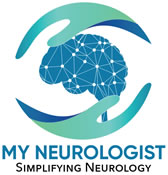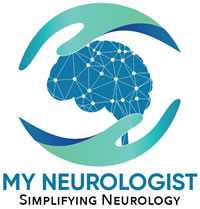Before I recommend proper nutrition for the nervous system, it is important to understand
what the nervous system is made of. The basic building block of our central (brain and the
spinal cord) and the peripheral nervous system (the nerves) is a neuron. Its basic function is
information transfer from one neuron to the other, or to a different type of tissue, like a
muscle. Like an electrical wire, large part of its surface is coated with an insulator, a fatty
material called myelin. Neurons, especially of the central nervous system, are the most
protected cells in our body. Physically, they are supported by a different type of cells called glia,
and together they make complex circuits. These circuits are the basis of all our physical and
non-physical characteristics and abilities. Oxygen and nutrition are supplied to this system in a
special and preferential manner, which is made possible by intricate sets of arteries and veins.
And then there are special cells that are there to guard against any infection. All these cells and
structures require oxygen and energy, and they have some special needs. Following
recommendations are provided to properly maintain the nervous system, prevent any harm to
it, and to avoid any issues that may arise in its different parts.
- Hydration: About 60% of our body is made up of water. Hydration level has direct
impact on our nervous system’s function. We have complex physical and biochemical
systems in place to maintain our hydration. But these systems are not well developed in
children and do not work as well in old age, or in sickness. It is a good idea to drink a
glass of water first thing in the morning, ideally even before coming out of bed. A glass
or two more during next half an hour can help even further, especially in older age. At
the same time, minimize fluid intake and avoid taking caffeine a few hours before
sleeping. It is quite common for people to seek medical help for lightheadedness or
dizziness caused by dehydration, which can easily be prevented by some simple
preventive measures. - Proteins: About 20% of our body is made up of protein. Every cell of body has protein
and in some manner is involved in protein manufacturing and processing. All that work
requires constant supply of building blocks (amino acids) to make human proteins. Both
vegetarian or an animal-based protein food, or a combination, can provide the needed
amino acids. Choice of either or both depends upon multiple factors including taste,
traditions, availability, or socio-religious concerns. If possible, different types of protein
containing foods should be eaten. This is true for vegetarian diets too, where it is better
to diversify with different type of protein containing foods such as grains or legumes.
There is evidence that over-reliance on certain type of proteins, such as red meat has
negative impact on the blood vessels, resulting in plaque build-up, tightening, and
strokes, while the so-called white meat (e.g., fish and poultry), or a vegetarian diet may
decrease that risk. - Fats: A significant part of our body is composed of fat which serves multiple functions.
It’s exact amount significantly vary between different ages, genders, and built. For
example, every cell of our body has a wall that is partly made up of fat. Neurons are
insulated with a fatty material called myelin. Fat is also there for energy reserves,
support and cushioning of our internal organs, support for our skin, and joints. We also have the capacity and common tendency to amass more fat than what we need, which is the main issue in obesity. In general, plant derived and less processed fats, or oils, are healthier than animal derived, but not all animal derived fat is bad. Fat intake can be adjusted based upon one’s weight, age, activity level, and weather. It is better to have variety, and there is some evidence that olive oil and fish oil might be better than other types of fat. - Carbohydrates: Carbohydrates are the main source of energy for us, though they are not the only one. But for the brain, glucose, a carbohydrate, is the main source of energy. It is better to eat less processed and less refined carbohydrate. For example, raw cane sugar is better than the refined white sugar, whole grained non-refined flour (or grains) is better than refined white flour (or grains), and natural sugars (or sweeteners) are better than synthetic. Honey has some medicinal value, which makes sense if it is raw, local, and taken in small amount without cooking. It is better to eat variety of carbohydrate and avoid refined and high sugar containing foods and drinks. Finally, complex carbohydrates like grains are better than simple ones like glucose or sugar.
- Fiber: Fiber is that part of food that our body does not digest, and it passes through mostly as it is. It is a significant part of whole grains, fruits, and vegetables. Despite our inability to digest it, fiber in our diet has some critical functions. It provides bulk to the food passing through our gut. Without it, our intestines may have very tough time moving the food through resulting in constipation. It also helps us control our calorie intake. A diet rich in fibrous foods (fruits, vegetables, and legumes) is much healthier for us than a diet deficient in this category.
- Vitamins & minerals: These are special chemicals our body requires, though in very small amounts. Their deficiency may lead to multiple types of ailments. A balanced diet of protein, fats, and carbohydrates (as described above) with ample fruits and vegetables, and some nuts may provide all the vitamins & minerals an average human body may need. There is no evidence that for a healthy person taking a balanced diet, supplemental vitamins & minerals provide any additional benefit. On the other hand, someone deficient of vitamins may benefit from vitamin supplementation. In addition, for an average individual without any vitamin deficiency, natural vitamins in diet are better than the ones sold in the pharmacy. So, if the intention is to take some vitamin C, eat an orange or two a day, for B vitamins, eat whole grains instead of white or refined ones, and for minerals take some additional dried fruits and vegetables.
- Alcohol: Alcohol has multiple types of physical and psychological effects on our body and mind, almost all of them negative. It is toxic to every part of our nervous system. When taken in large amounts, it can acutely and significantly damage our central and peripheral nervous system. More commonly, it acts as a slow poison. It kills our brain cells and the nerves everywhere in our body. No amount of alcohol taken for recreational purpose is completely safe for consumption. For long-term health of our mind and brain, avoid drinking alcohol.
- Cannabis: Unlike alcohol, cannabis is a complicated product with hundreds of different chemicals. There are some limited areas of medicine where cannabis use might have some value. For an average user without a proper indication, there is no evidence that it has a positive effect. In fact, there is evidence that, not unlike alcohol, cannabinoids are toxic to brain cells. A lot of research is needed before making any definitive statements about its benefits. Most statements made to this date, 2024, about its benefit are anecdotal or not based upon controlled trials, which carry limited scientific value.
- Herbs or the natural remedies: This is a large subject, but its status can be described in a few sentences. Human beings have been using anything they could get their hands on, elemental, chemical, or botanicals, to treat conditions that they either did not understand well or did not have any way to treat. Every ancient society had such “healers.” Evidence they collected was from personal experience or anecdotal, which we now do not accept as valid. Sometimes, those past human experiments helped find useful chemicals, e.g., aspirin is a modified version of a chemic from the Willow tree. For a different example, humans have treated migraine for centuries using every possible means, including botanicals. Some of that is marketed as “natural” remedies, but their effectiveness to treat or control migraine is debatable. Their efficacy cannot match aspirin or the modern migraine medicines. Despite widespread claims one may find on the net, I am unable to find a single example where a neurological disease can be reliably and effectively treated with an herbal med.


Leave a Reply
Your email is safe with us.
You must be logged in to post a comment.